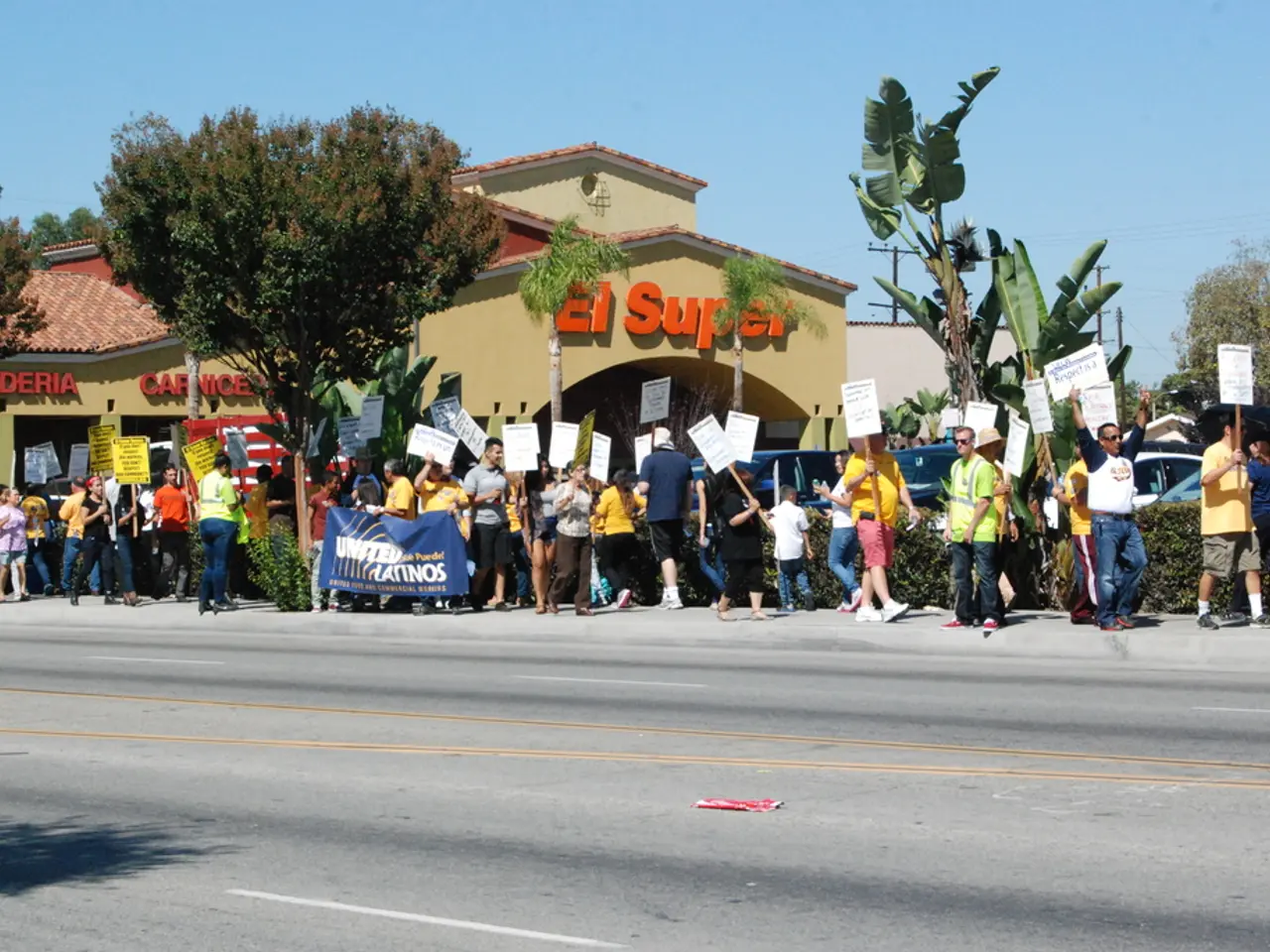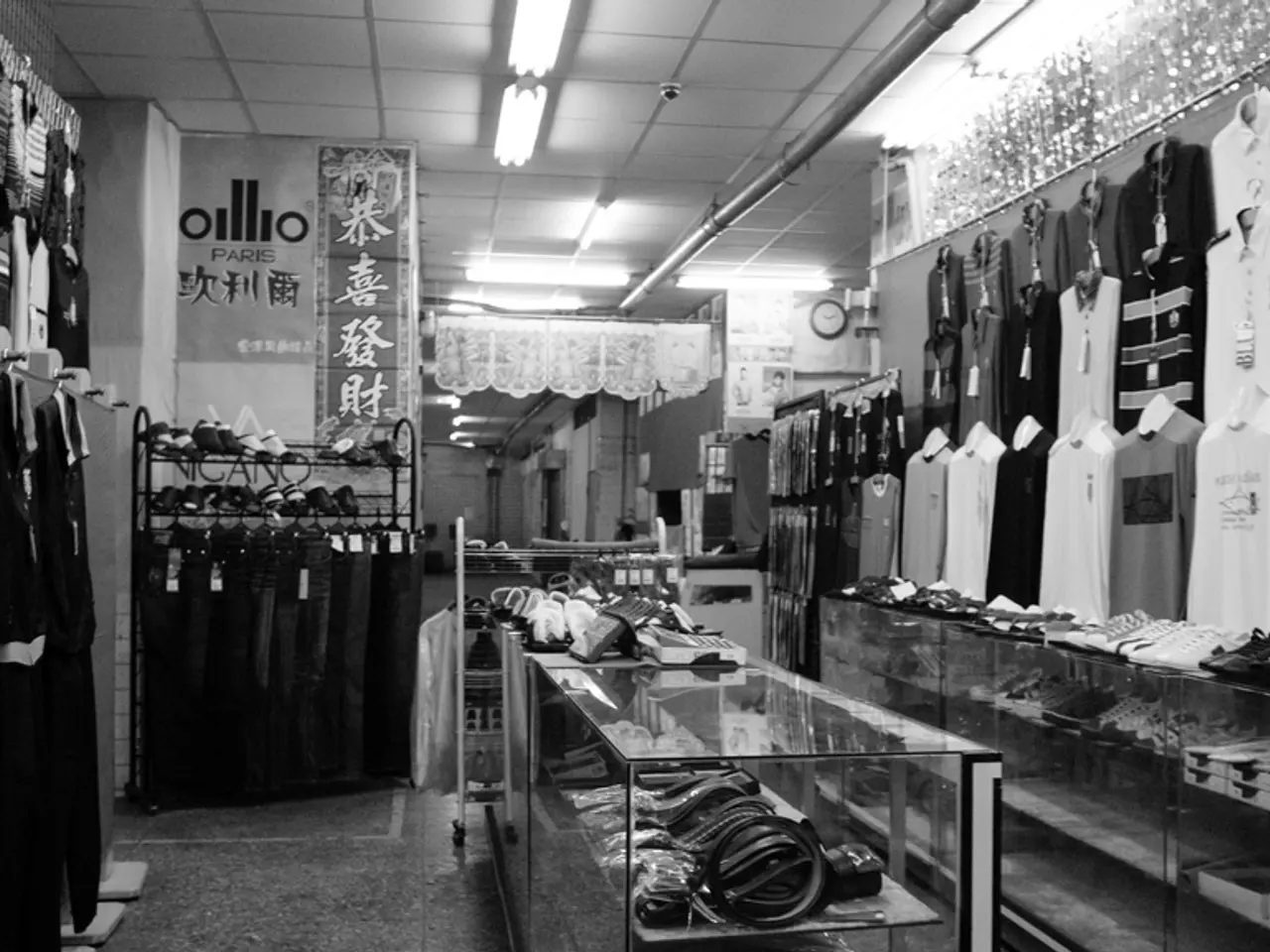Trump's decision to terminate Temporary Protected Status revealed to carry racial and discriminatory bias according to a federal court ruling
In a significant ruling, a federal judge based in San Francisco, Trina Thompson, has halted the Trump administration from revoking the Temporary Protected Status (TPS) for Nicaraguan, Honduran, and Nepali immigrants.
The judge's ruling is based on legal challenges that question the improper process and insufficient justification for TPS termination. The challenges argue that the TPS terminations were predetermined and not based on current country conditions, violating the Administrative Procedure Act and the due process clause of the Fifth Amendment.
This decision is a reprieve for more than 60,000 immigrants who have been allowed to legally live and work in the United States under the TPS program. The program can be renewed in 18-month increments.
The ruling states, "Color is neither a poison nor a crime," and that the plaintiffs have provided sufficient evidence to establish that they will likely succeed on the merits of their Fifth Amendment claim. The judge's ruling also argues that the move by Homeland Security Secretary Kristi Noem to cancel the temporary humanitarian protections appeared to be partially rooted in "racial and discriminatory animus" in support of their Fifth Amendment claim.
The Department of Homeland Security (DHS) has responded by filing appeals and indicated it would seek emergency stays to enforce its termination decisions. Notably, a federal judge in New York issued a nationwide injunction blocking DHS from terminating TPS for Haiti, which parallels these cases, with DHS appealing that ruling as well.
Advocacy groups have criticized the terminations for risking the stability and safety of these immigrant communities who fled natural disasters and insecurity. DHS Secretary Kristi Noem was the official overseeing the termination announcements.
The U.S. Supreme Court previously sided with the Trump administration in a ruling that lifted a San Francisco District Court Judge's injunction that temporarily blocked the termination of TPS for Venezuelans. However, the White House spokesperson, Abigail Jackson, has stated that TPS was never intended to become permanent and that the judge did not have lawful authority to review the TPS designation.
The Department of Homeland Security has acknowledged that some individuals who have exploited the TPS program have convictions for aggravated assault, sex crimes against children, domestic violence, resisting arrest, and possessing, selling, or manufacturing a dangerous weapon. The Department has likened Judge Thompson's ruling to race-baiting to distract from the facts and President Trump's constitutionally vested powers under Article II.
DHS Assistant Secretary Tricia McLaughlin said, "Restoring integrity to our immigration system to keep our homeland and its people safe. That is all we-and the American people who elected President Trump in a landslide election-seek."
Louis Casiano is a reporter for our website Digital. Story tips can be sent to [email protected].
[1] https://www.cnn.com/2021/05/11/politics/temporary-protected-status-nicaragua-honduras/index.html [2] https://www.nytimes.com/2021/05/05/us/politics/temporary-protected-status-nicaragua-honduras.html [3] https://www.washingtonpost.com/politics/2021/05/05/trump-administration-temporary-protected-status-nicaragua-honduras/ [4] https://www.nbcnews.com/news/latino/temporary-protected-status-nicaraguans-hondurans-face-uncertain-future-under-biden-n1265868 [5] https://www.reuters.com/world/us/us-supreme-court-lifts-san-francisco-judges-block-venezuela-tps-termination-2021-02-25/
On one hand, the political landscape regarding TPS for Nicaraguan, Honduran, and Nepali immigrants is shifting, with a federal judge's decision halting the Trump administration from revoking the status, due to arguments of improper process and insufficient justification. On the other hand, the Department of Homeland Security, in response, has expressed opinions that this judgment, based on claims of racial and discriminatory animus, undermines the administration's authority and the constitutional powers of the president.








